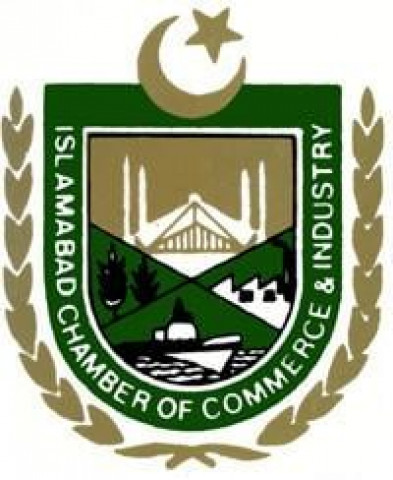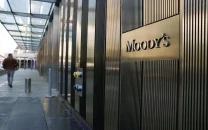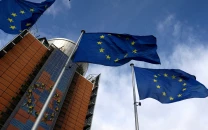Reaction: Rate cut to facilitate easy access to bank credit
Businessmen welcome one percentage point cut in policy rate.

Despite this clear assurance, 50 traders were arrested the very next day. PHOTO: ICCI
“Many countries have made drastic cuts in policy rates to restore economic activities,” said ICCI President Muzzamil Hussain Sabri, adding credit cost for the private sector in Pakistan, however, remained high because of a high discount rate, constraining business growth.
He said the reduction in the policy rate to 7% would be beneficial as it would cut the input cost for businesses, facilitate easy credit availability to the private sector and encourage new investment.
“The State Bank should also ensure that banks focus on private sector lending, as for the policy rate to be effective bank credit should be predominantly utilised by the private sector for boosting business.”
Bank lending to the private sector dropped over 36% in the first 10 months of the current financial year as businesses received only Rs178.8 billion as compared to Rs281.9 billion during the same period last year.
“Pakistan’s industrial sector is in urgent need of balancing, modernisation and replacement of machinery and technology to produce quality products in line with international standards,” added Sabri. “A cut in the interest rate will help in upgrading technology and machinery.”
He said the growth of large-scale manufacturing sector, which grew 2.2% in the first seven months of 2014-15, would also accelerate due to the rate cut and low prices of raw material.
Pace of reforms must accelerate
Pakistan Businessmen and Intellectuals Forum (PBIF) President and former provincial minister Mian Zahid Hussain also supported the one percentage point cut in the policy rate to the lowest level in 42 years in order to spur growth.
“The decision reflects coordination among important institutions, but reduction in the interest rate will not serve the purpose unless the pace of reforms is accelerated.”
However, the government should show restraint in borrowing from commercial banks and improve governance to ensure 4.5% growth next year, which would be the highest in eight years, he added.
Out of 200 potential taxpayers, only one submits return which forces the government to impose indirect taxes, hurting the vulnerable, and seek foreign assistance to balance the budget, he noted.
Published in The Express Tribune, May 26th, 2015.
Like Business on Facebook, follow @TribuneBiz on Twitter to stay informed and join in the conversation.


















COMMENTS
Comments are moderated and generally will be posted if they are on-topic and not abusive.
For more information, please see our Comments FAQ